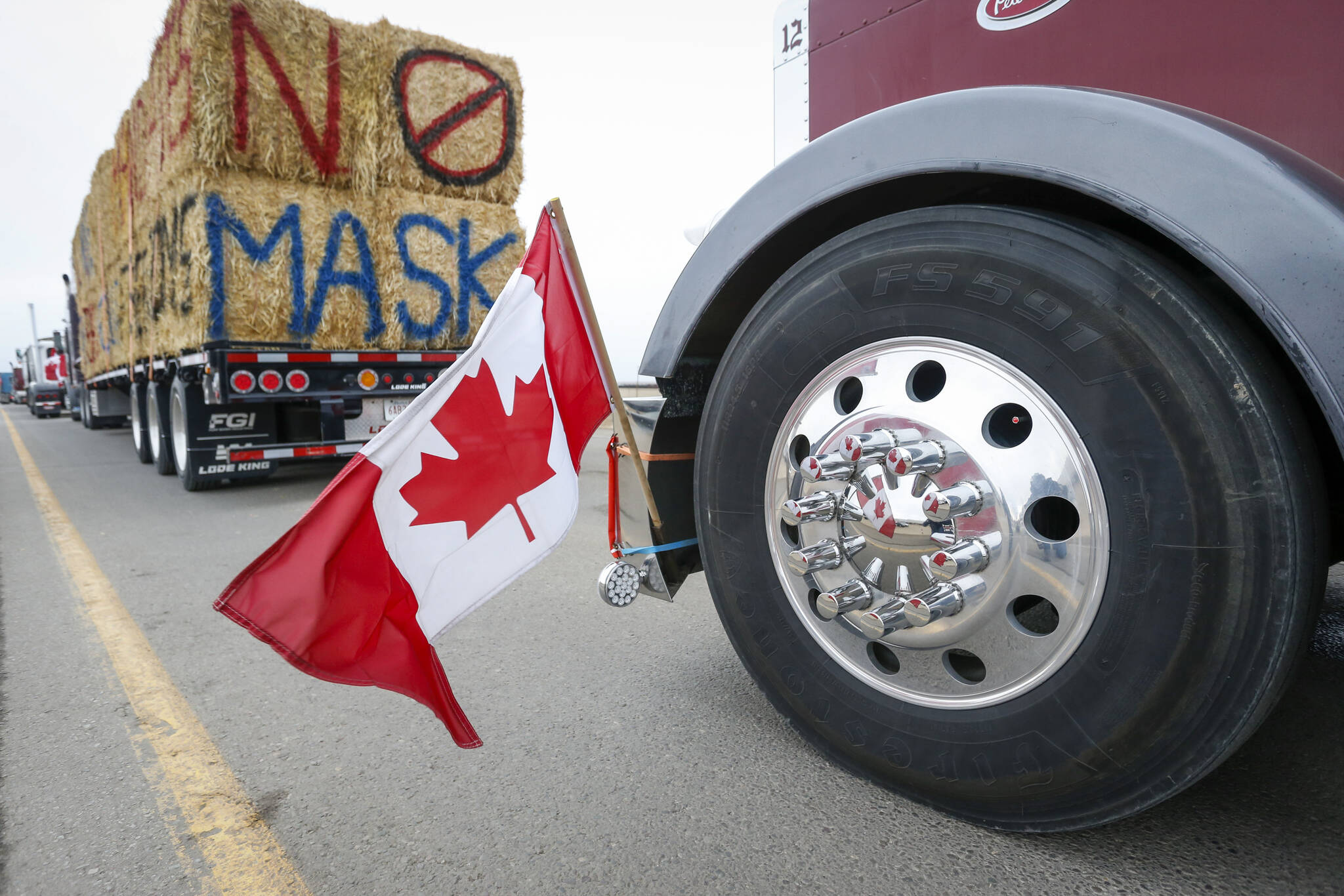The mayor of a village in southern Alberta says there will be no mail and some students have not gone to school because of a truck convoy that has blocked a highway at a busy U.S. border crossing to protest vaccine mandates for drivers.
Mayor Jim Willett says he’s angry and frustrated because about 100 trucks lined up on Highway 4 are preventing a mail truck from entering Coutts and a school bus from leaving the village for the nearest school.
“I’m tired of it,” Willett said Monday about the convoy, one of many in Canadian towns and cities on the weekend that coincided with truckers and their supporters meeting on Parliament Hill in Ottawa to protesting the federal government’s COVID-19 measures.
“There’s nothing more I can do about it other than hope that people who have a little more say settle this.”
The mayor said he advised people to lock their doors and be extra vigilant on Friday, because “strangers were going to be in town.” Organizers of the event told him they were going to cross the border and return only once to slow down traffic, he said.
Willett said the roughly 250 residents of Coutts haven’t been able to use the blocked road to get to the nearest grocery store, gas station and pharmacy.
He said he understands freedom to protest, but he added that the Alberta government needs to act to allow the movement of goods and services near the border, where only foot traffic has been able to get through.
“They’re (truckers) figuring they’re just going to camp out and stay here, but … the government has to do something. This is the major commercial conduit to the States. It affects Alberta’s economy and your grocery store shopping.”
RCMP Cpl. Curtis Peters said officers were attempting to come to a resolution with protesters with the least amount of intervention.
“I know that the only school bus that facilitates travel for Coutts did not come today,” Peters said. “I personally spoke to the school bus driver who … didn’t feel that they’d be able to transport those students and felt unsafe to do so.
“Students have missed enough school over the course of the pandemic. I don’t think that causing them to have further delays of their education is really doing them any service at all.”
At the blockade, vehicles displayed U.S. flags and upside-down Canadian flags. A banner reading “End Mandates Now” was strung across one empty parked truck.
RCMP said officers were telling people trying to travel into the U.S. to use a different port of entry. Mounties were turning away truckers and other motorists about 15 kilometres from Coutts.
The message was the same on the other side.
“Officials in Montana are stopping and advising motorists, commercial vehicles, passenger vehicles to find the ultimate route as they won’t be able to get through once they cross into Canada, Peters said.
Premier Jason Kenney has said it’s up to local authorities to enforce provincial legislation, which allows for additional penalties against protesters blockading highways and other infrastructure.
The law, passed by his United Conservative government last year, protects railways, highways and pipelines from anyone trespassing, interfering with operations and construction, or causing damage.
Kenney has said that restrictions by both Canada and the U.S. to bar entry by truckers not vaccinated against COVID-19 further aggravates supply-chain bottlenecks.
—The Canadian Press
RELATED: Calling the Ottawa protests ‘peaceful’ downplays non-violent dangers, critics say

